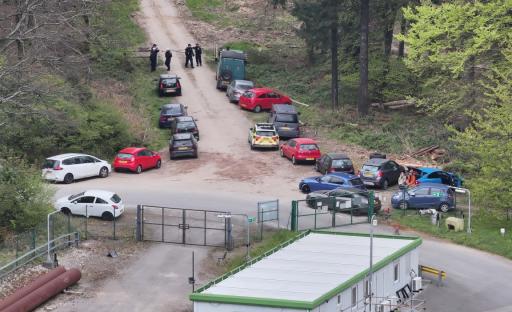In her song and music video “Child of the Government“, Jayli Wolf is sharing the story of how her father was ripped from his family in The Sixties Scoop.
“My dad was a child of The Sixties Scoop when he was a baby. The Sixties Scoop is where the Canadian Government and the Catholic Church stole more than 20,000 Indigenous children,” said Jayli Wolf.
The Sixties Scoop refers to the time in 1951 until the 1980s when thousands of Indigenous, Métis and Inuit children were taken from their parents without consent and adopted into predominantly non-Indigenous families across the U.S. and Canada as part of the decimation of Indigenous culture and communities, according to the Canadian Encyclopedia.
Read more: The first Youth Recovery House in the Okanagan prepares to open ahead of schedule
“The colonization in how it's affected Indigenous people isn't something of the past,” said Wolf. “It's continued on and it's still happening with the amount of Indigenous children in foster care today.”
In Canada, 52.2 per cent of children in foster care are Indigenous but account for only 7.7 per cent of the child population, according to the Census 2016.
Read more: Canada one step closer to child welfare reform, say Saskatchewan First Nations leaders
“This means 14,970 out of 28,665 foster children in private homes under the age of 15 are Indigenous,” states an article by the Canadian government.
She's been reclaiming her heritage through her music after discovering that she is Anishinaabe and Cree.
“I am biracial, my mother is Danish and my dad is Indigenous,” said Wolf.
Wolf had a strained relationship with her father, Mitch Loberg, but has been re-building. She has since met with and visited with her paternal side of the family and is learning to speak Cree.
“It just feels like little parts of me are all coming back together.”
Read more: West Kelowna country music fundraiser for MS eyes another record-breaking year
The song is a rebirth for Wolf and her father.
“When I wrote this and shot the music video, I just wanted it to be healing for me and for my biological father [who] has told me how healing it has been for him,” said Wolf.
“I just want to create art and show that I am not afraid of saying this and I want to tell this story.”
The imagery in the music video, shot in her hometown of Creston, B.C., is dripping with meaning, just as the tall pine tree drips blood onto her face.
“I wanted it to be falling onto me because I wanted it to represent my bloodline,” said Wolf.
“We all have generations of memories inside of us, so the blood dripping is a representation of I am embracing this now.”
Read more: Enderby education centre to let community race along salmon migratory route, virtually
Her partner and cinematographer Hayden Wolf of Vernon B.C. said it took time to find the perfect tree.
“That tree was actually struck by lightning and survived a forest fire so it's such a crazy story of resilience that ties into Jayli and her family's story,” said Hayden.
The Toronto-based team was able to create exactly what they had envisioned with full creative control to truly make an impact by filming and casting it themselves.
“Being able for me and Jayli to be able to execute our vision the way we want to see it done is really cool,” said Hayden.
Watch the full video on her YouTube page.



